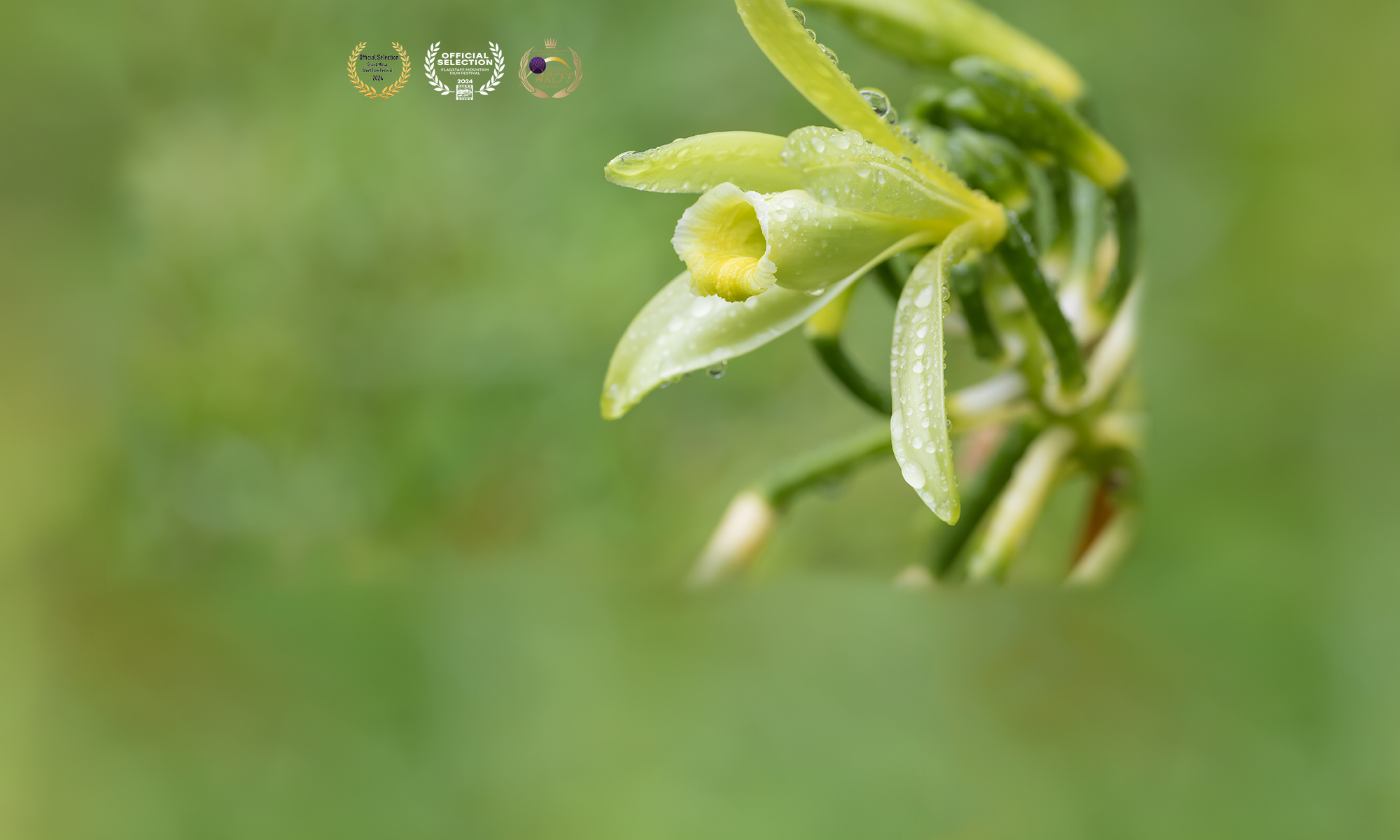Although many take vanilla for granted, this difficult and dangerous crop could be a lifeline out of poverty for farmers in Madagascar. Will the women responsible for vanilla cultivation be able to weather the storms that threaten their livelihoods?
“Voice of Vanilla” is an observational documentary that delves deep into the lives of vanilla farmers in Madagascar, a land rich in culture yet largely unknown to the outside world. At the heart of our story is Joby Denise, a vanilla farmer whose daily life revolves around the fragile vanilla orchid—a plant that epitomizes the delicate balance of her existence.
Vanilla farming, once a straightforward task for Joby, has grown increasingly complex and precarious due to new pests, diseases, and extreme weather events like cyclones that not only threaten crops but also homes and communities. Additionally, the vanilla trade is fraught with volatility and exploitation by middlemen, trapping farmers like Joby in a relentless cycle of poverty.
Through intimate storytelling, “Voice of Vanilla” aims to educate audiences about the origins of vanilla and the profound challenges faced by those who cultivate it. By showcasing the resilience and ingenuity of Joby and her community, we seek to foster a greater understanding of the importance of ethically sourced ingredients and support for farmers’ rights to a livable income.
Join us as we explore the vibrant culture and pressing issues of Madagascar. Our vision is a world where marginalized voices are not only heard but also drive meaningful change. Our mission extends beyond raising awareness—it’s about sparking dialogue, promoting sustainable practices, and advocating for solutions that ensure the well-being of vanilla farmers and their environments.
We invite you to be part of this journey. Together, we can influence how the world thinks about the food we consume and the stories behind one of the world’s most cherished flavors. Let’s make a difference—one story, one film, one viewer at a time.
Our Vision and Mission
Our vision is to create a world where the stories of marginalized communities lead to impactful change.
Our mission is to illuminate the daily realities and challenges of rural women vanilla farmers in Madagascar, promoting dialogue, collaboration, and action. We’re committed to driving investment in climate adaptation and resilience, elevating women’s narratives, and ensuring that farmers receive fair compensation. Join us in our campaign to address some of the most pressing social, economic, and environmental issues facing our world today.
If you join our email list, you’ll receive occasional updates about screening events and opportunities to take action.

